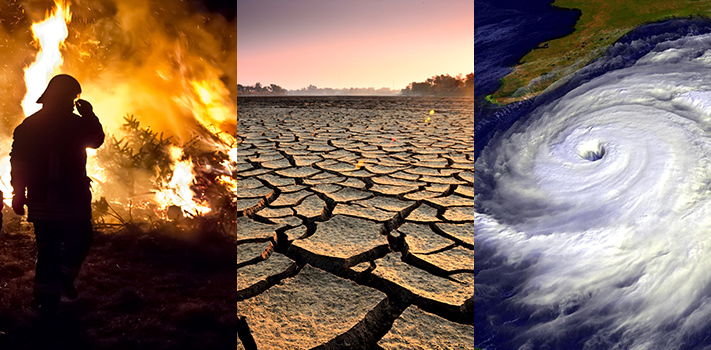Delegates at the COP27 conference in Egypt have decades of research into warming trajectories published by the United Nations Climate Science Agency to inform their decisions. They have all information about climate change.
Every five years, the Intergovernmental Panel on Climate Change (IPCC) publishes reports that represent a global scientific consensus on climate change, its causes, and its consequences. Last year’s report focused on the primary causes of global warming as well as the fundamentals of climate science.
This was followed by two major reports this year: one in February on how the world will need to adapt to climate impacts ranging from rising seas to dwindling wildlife, and another in April on ways to reduce greenhouse-gas emissions.
And this is how the climate disaster occurred.
Humans were greedy, now they are paying
Last year’s report on the physical basis of climate change blamed humans unequivocally for rising temperatures. It also stated that climate change was dangerously close to becoming uncontrollable. Weather extremes that were previously uncommon are becoming more common, and some regions are more vulnerable than others.
For the first time, the report’s authors called for immediate action to reduce methane emissions. The IPCC had previously concentrated on carbon dioxide, the most abundant greenhouse gas. With time running out to avert catastrophic climate change, the authors believe it is worthwhile to investigate the advantages and disadvantages of geoengineering or large-scale interventions such as injecting particles into the atmosphere to block out solar radiation. According to the report, the world’s nations, including the wealthiest, must begin preparing for climate impacts and adapting to a warmer world.
As it is, we have to adapt to climate change
The news of Russia’s invasion of Ukraine overshadowed the February release of a seminal report on how the world should prepare for a warmer world. With climate change already causing extreme weather around the world, the report urged rich and poor countries alike to prepare for effects such as more frequent heatwaves, stronger storms, and rising sea levels. The report stated unequivocally that different regions face different risks, and it provided localized projections of what to expect.
As climate change affects crops and water supplies and threatens to disrupt trade and labor markets, millions of people will face poverty and food insecurity in the coming years. The bleak forecast for the world’s poor has reignited calls for a “Loss and Damage” fund to compensate poor countries for costs incurred as a result of climate-related disasters.
Following a breakthrough at the start of this year’s climate summit, the issue of loss and damage is now on the formal agenda of the United Nations talks for the first time.
We destroyed it, we have to repair climate change
It’s “now or never,” according to one report co-chair when releasing findings that show that only drastic emissions cuts over the next few decades will keep warming from spiraling out of control.
The report investigated how different emission scenarios would affect future temperature rises.
Cities are a significant contributor to the emissions problem, but they are also a source of hope and positive solutions, according to the report.
The transition to renewable energy and clean-burning fuels is taking too long. Beyond focusing on fossil fuels and manufacturing, the report urged strong climate action in agriculture, where improved farming methods and forest protection could reduce emissions. It warned that climate change threatens economic growth and, for the first time, emphasized the importance of individual action, urging governments to agree on policies to change consumer and transportation habits in order to encourage less waste.

